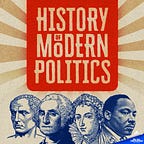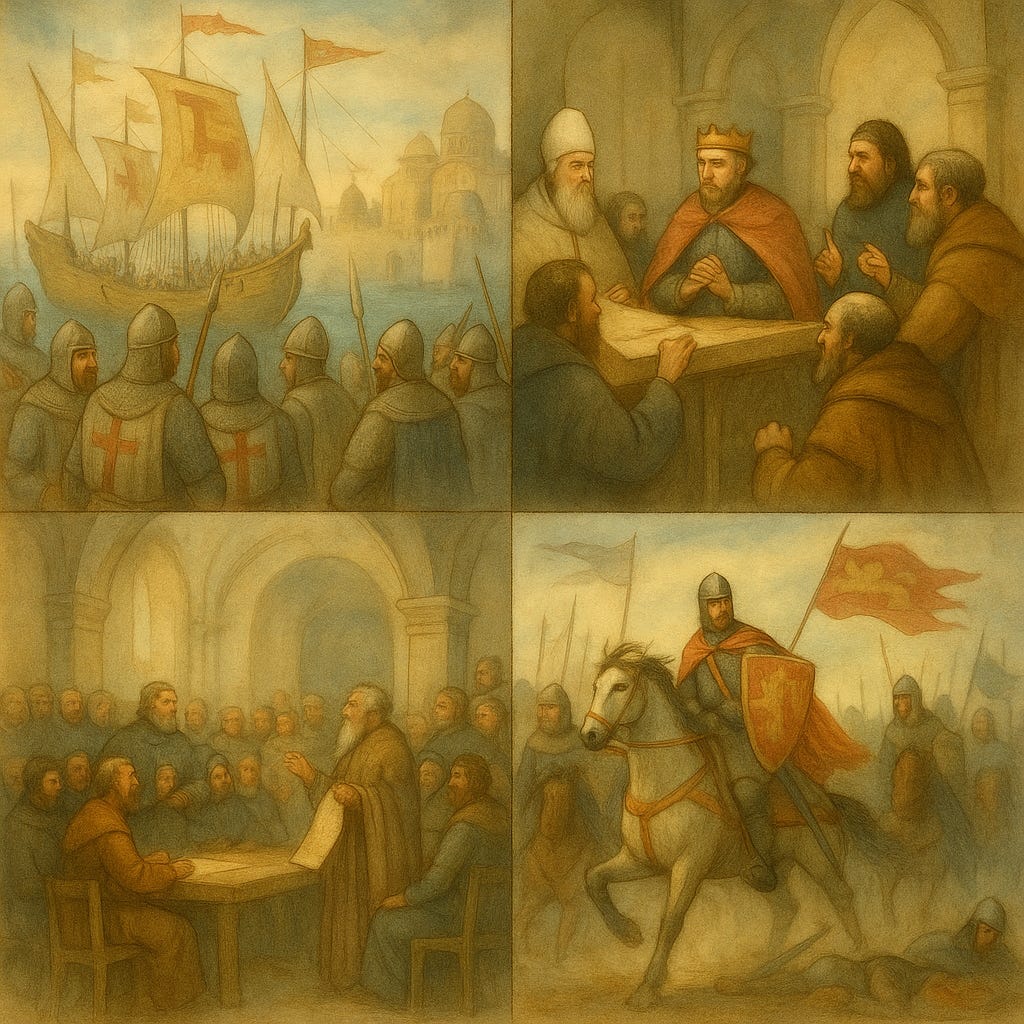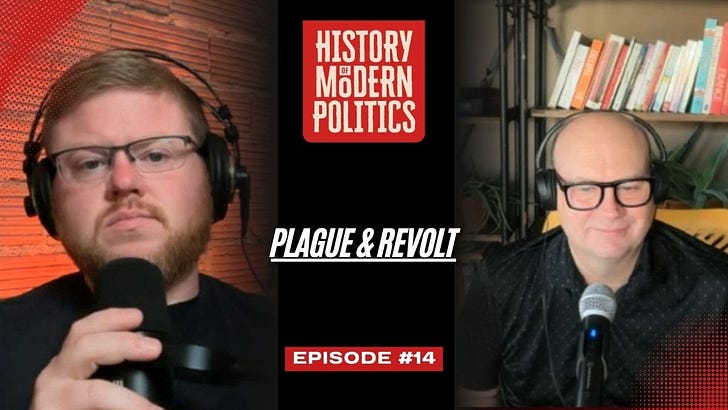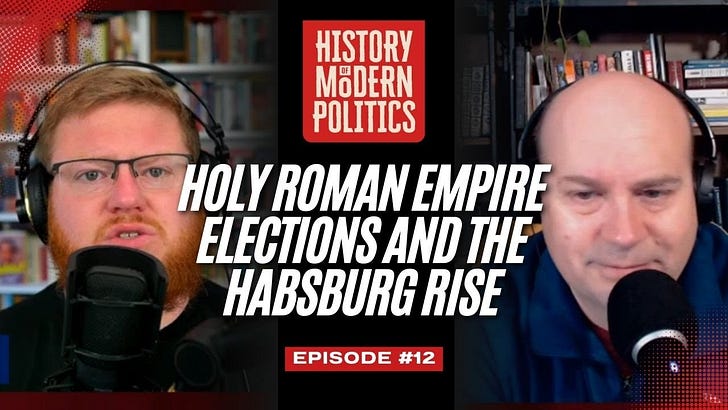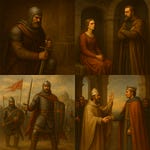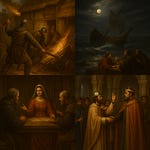The cold open sends us far from England—to the early Christian East, the Nestorian world, and the strange medieval hope that a distant Christian king, Prester John, might ride out of Asia to save Jerusalem. These stories remind us how wide medieval imagination could stretch, even as Europe struggled to hold its own frontiers. They also set the stage for the disasters and disillusionment of the Fourth and Fifth Crusades, which exposed the limits of Crusader ambition and the strains within Christendom itself.
Back in England, the 13th century opened in the shadow of the First Barons’ War. A nine-year-old Henry III was crowned under the protection of William Marshal, the last great knight of the age and the man who steadied the monarchy long enough for it to survive. Henry grew into his kingship, but the memory of civil war never quite left him, nor the nobility. Reissues of Magna Carta was both a gesture of stability and a reminder that royal authority was now conditional, negotiated, and watched.
At the same time, Europe’s intellectual map was changing. The Gregorian Reforms had created a hunger for trained clergy and jurists, and the rediscovery of Justinian’s Corpus Juris Civilis in northern Italy ignited a legal renaissance. New universities rose: Bologna for civil and canon law, Paris for theology, and—thanks to Henry II’s break with the Continent—Oxford, which absorbed exiled English students in 1167 and quickly grew into a center of its own. Knowledge, once confined to monasteries, now belonged to a network of scholars who moved across borders carrying books, ideas, and disputes.
This mattered for England. As continental thinkers rebuilt Roman law, English royal courts continued developing something different: common law. Rooted in precedent rather than codification, administered through royal justices rather than university-trained clerics, it evolved into a uniquely English answer to the same pressures that reshaped Europe. While France and the Empire leaned on the revived civil law, England doubled down on jury verdicts, writs, and the principle that the king’s courts governed the realm—the seeds of constitutional order.
Yet the 13th century was also a reminder that law alone could not discipline power. Henry III’s reliance on foreign favorites, his costly ambitions abroad, and his struggles with taxation sowed the seeds of confrontation with the barons—seeds that will burst open in the Second Barons’ War and the emergence of something new: a Parliament that would speak in the name of the realm.
My takeaway: England’s politics evolved and matured with the dynamics of the monarchy, the barons, and foreign affairs. Crusades faltered, empires clashed, and universities flourished, but the real revolution was quieter: a king accepting that he must govern with limits, and a legal culture learning to speak for the whole community.

